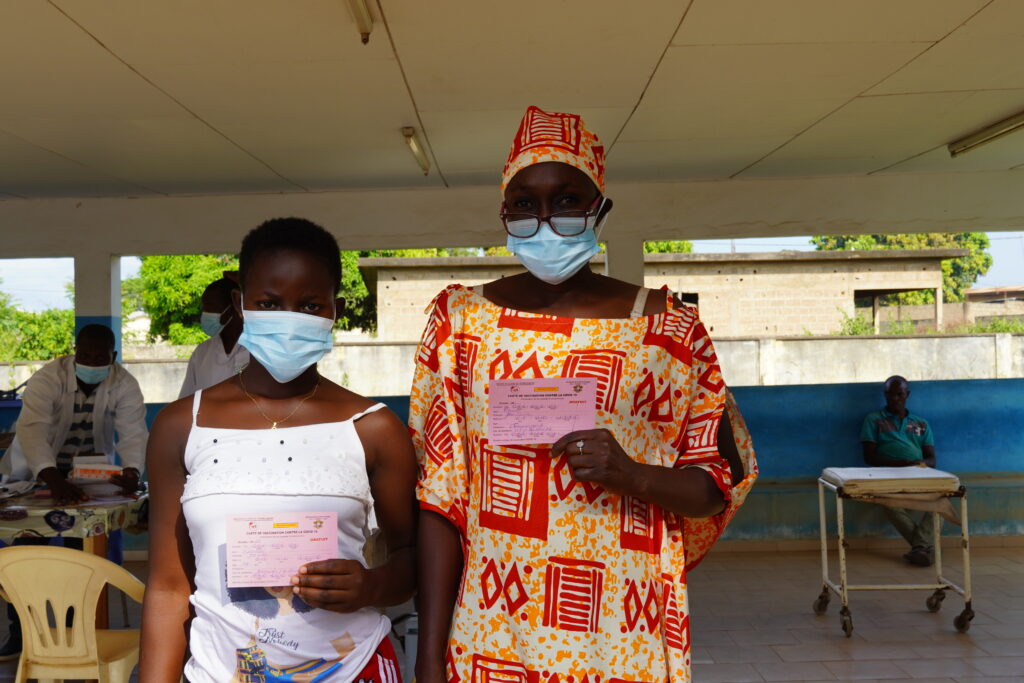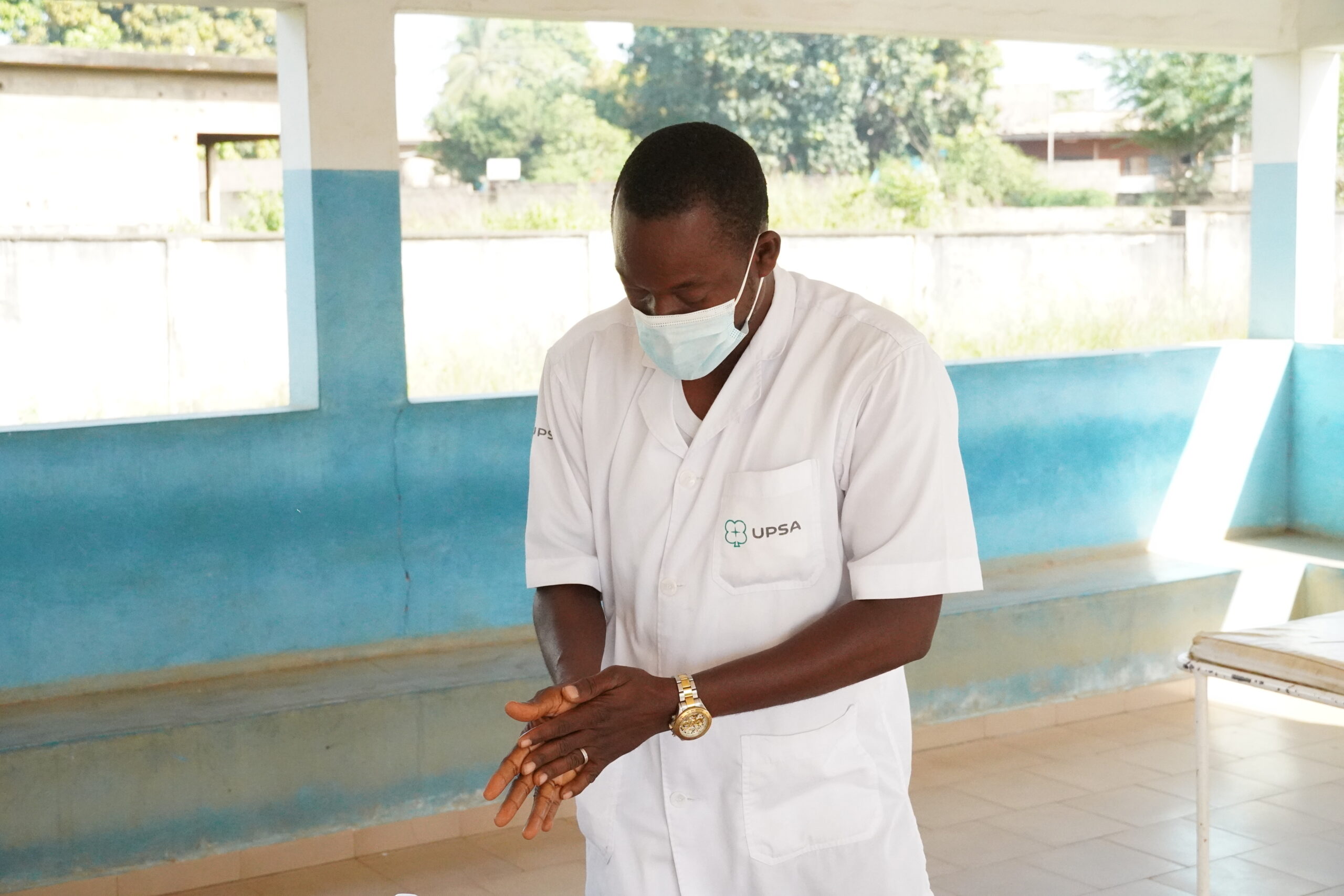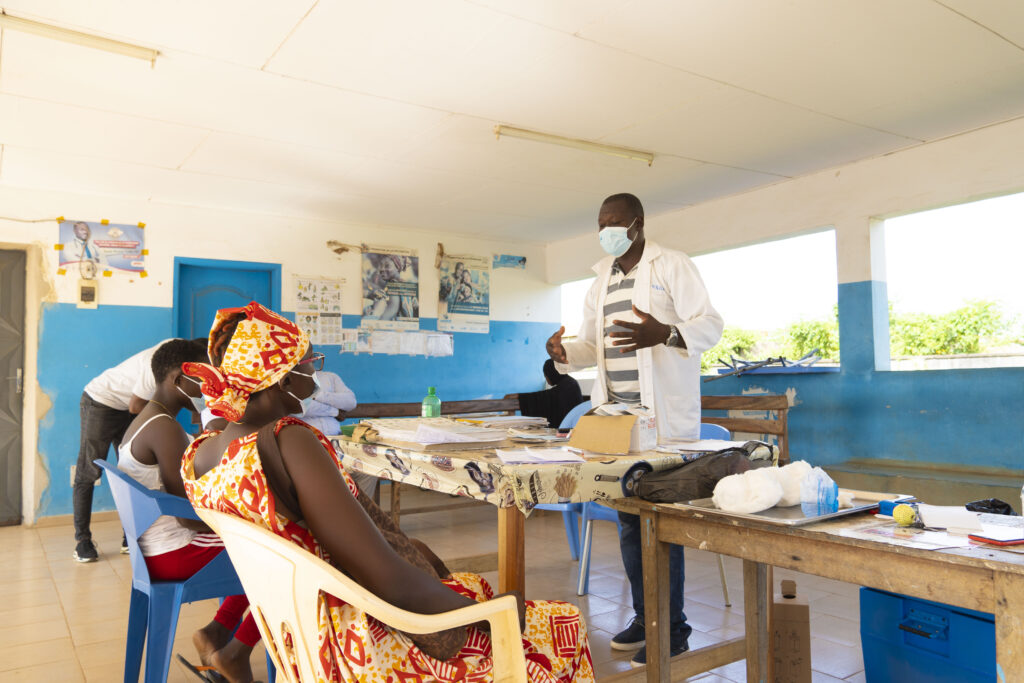Going the extra mile to protect the population of Côte d’Ivoire against COVID-19
The threat of COVID-19 and how to protect her family were important concerns for Béatrice, a mother living with her teenage girl in Bouaké, Côte d’Ivoire. But like many people in her community, Béatrice worried about the vaccination’s safety.

Béatrice and her daughter showing their COVID-19 card confirming that they were vaccinated. Photo credit: Timothé Chevaux/USAID MTaPS
Since the early days of the pandemic, the Government of Côte d’Ivoire has worked tirelessly to secure vaccines and protect its population and health workers against COVID-19. Prosper Toui Bi Irié, responsible for vaccination at the Health Center of Belleville in Bouaké, explains, “Vaccination is critical due to how contagious this disease is, to be able to protect oneself but also others.”
Ahead of vaccination campaigns, health workers were trained on how to administer COVID-19 vaccines, including infection prevention and control (IPC) standards and appropriate management of waste. With support from the US Agency for International Development (USAID) through its Medicines, Technologies, and Pharmaceutical Services (MTaPS) Program, the Ministry of Health and Public Hygiene trained 2,260 COVID-19 vaccination providers countrywide between February and December 2022. Prosper explains, “IPC is critical so no one gets infected, whether it’s the patient, the health worker, or the entire community. IPC doesn’t simply include hand washing but we also need to ensure that the site and the vaccination process are appropriate, and that used needles are properly stored and disposed of.”
But strengthening IPC practices isn’t the only measure taken. Vaccinating people cannot be done safely without monitoring the potential side effects of the vaccine. USAID MTaPS supported vaccinators to build their capacity for tracking adverse effects following immunization and ensuring that the system to track these potential effects is functional across all health zones. If severe adverse effects arise, patients are referred to the regional general hospital where they receive appropriate care. Additionally, Côte d’Ivoire uses a COVID-19 vaccination card system that provides key information on the type of vaccine, the date and place the vaccination occurred, and key demographic information on the person who received the vaccine.

Health worker at the Health Center of Belleville practicing hand washing before vaccinating a client. Photo credit: Timothé Chevaux
As a result, before vaccinating volunteers, Prosper takes the time to clearly explain the different steps to clients, including how the vaccine is administered, the importance of having patients wait after receiving the vaccine to ensure that there are no immediate side effects, and what to do following vaccination in case of fever or more severe side effects. These efforts have helped build trust and confidence in the vaccination process. He further shared that no major adverse effects following immunization happened in the area that he monitored, and thanked USAID for the support provided for the vaccination activities because, without it, the Gbêkê region would be facing a concerning number of cases of COVID-19.
As for Béatrice, the measures taken by the health staff helped address her concerns. She received information on where to get vaccinated, the process, and what to do if any side effects arise. She explains: “COVID-19 is a contagious disease and since it is contagious, we must get vaccinated, protect our health, and protect others. This is why I got myself and my daughter vaccinated [in the Health Center of Belleville].”

Prosper explaining the vaccination process to Béatrice and her daughter. Photo credit Timothé Chevaux